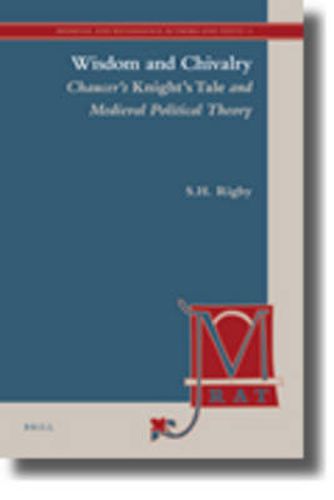Readings Newsletter
Become a Readings Member to make your shopping experience even easier.
Sign in or sign up for free!
You’re not far away from qualifying for FREE standard shipping within Australia
You’ve qualified for FREE standard shipping within Australia
The cart is loading…






The Knight’s Tale is one of the most controversial of all the Canterbury Tales. Does Chaucer portray Theseus, the duke of Athens whose actions dominate the tale, as an ideal ruler, one who is noble, wise and chivalrous, or does the duke’s behaviour reveal him to be immoral, self-seeking and tyrannical? This book (now in a corrected second printing) assesses the duke’s conduct and thought in terms of the ideals set out in medieval mirrors for princes, particularly in Giles of Rome’s De Regimine Principum. It argues that, when judged by the standards of these works, Theseus can be seen as a model prince in terms of his self-government (‘ethics’), his rule of his household (‘economics’), his governance of his realm (‘politics) and his cosmography and philosophy.
$9.00 standard shipping within Australia
FREE standard shipping within Australia for orders over $100.00
Express & International shipping calculated at checkout
The Knight’s Tale is one of the most controversial of all the Canterbury Tales. Does Chaucer portray Theseus, the duke of Athens whose actions dominate the tale, as an ideal ruler, one who is noble, wise and chivalrous, or does the duke’s behaviour reveal him to be immoral, self-seeking and tyrannical? This book (now in a corrected second printing) assesses the duke’s conduct and thought in terms of the ideals set out in medieval mirrors for princes, particularly in Giles of Rome’s De Regimine Principum. It argues that, when judged by the standards of these works, Theseus can be seen as a model prince in terms of his self-government (‘ethics’), his rule of his household (‘economics’), his governance of his realm (‘politics) and his cosmography and philosophy.